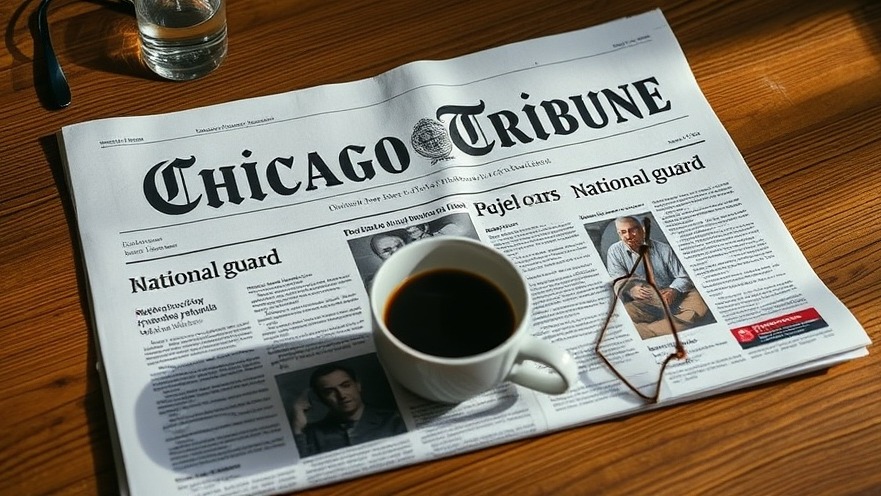
Trump's Controversial Proposal to Deploy the National Guard
In a surprising turn of events, former President Donald Trump has proposed sending the National Guard to Chicago in response to rising crime rates. This suggestion has ignited a robust backlash from Democratic leaders and community advocates who argue that such actions could exacerbate tensions rather than alleviate crime issues. The National Guard has historically been called to action in times of national crisis, raising fears about the militarization of urban spaces and the implications for civil rights.
Understanding the Crime Debate in America
Crime rates have been a persistent concern in major cities across the U.S., including Chicago, where violence has risen dramatically in certain neighborhoods. Advocates for community solutions emphasize social strategies—like education, job creation, and community policing—as more effective and humane responses compared to military interventions. Experts argue that past deployments of the National Guard in domestic unrest situations often led to further conflict, demonstrating that military presence is not a panacea.
The Political Landscape: Democrats Push Back
Democratic leaders have unequivocally opposed Trump's proposal, framing it as a politically motivated stunt to galvanize his base ahead of the upcoming elections. Leaders in Chicago have accused Trump of failing to understand the nuances of urban challenges and the need for thoughtful policies that prioritize community-led initiatives rather than military responses. As the political climate intensifies, the rhetoric surrounding crime will likely shape voter sentiments leading into the 2024 elections.
Community Voices: Impact of Militarization on Local Trust
Local community leaders argue that military presence in neighborhoods could erode public trust in law enforcement. Historical instances where the National Guard was deployed during civil unrest suggest that residents may feel alienated and vulnerable, where what they seek is support and understanding. In contrast, community-oriented policing has shown promise in improving relations between law enforcement and the neighborhoods they serve.
Examining Historical Context of Law Enforcement Deployment
Historically, the deployment of military forces in civilian contexts has raised questions about civil rights and public safety. The use of the National Guard in the civil rights movement showcased the dual purpose they serve: to maintain order yet, at times, to suppress legitimate peaceful protests. By analyzing these precedents, the current proposal can be seen as both controversial and potentially detrimental to community safety.
Future Predictions: The Path Ahead for Urban Safety
The conversations surrounding urban crime are on the brink of redefining public policy in America. With upcoming elections, the discourse will likely center around both preventative and reactive strategies to crime. Experts predict that if Trump's proposal gains traction, it could galvanize even more grassroots movements pushing back against militarization in urban settings. Potential Policy Reform may center around legislation focused on funding local law enforcement training and community programs tailored to address crime's root causes.
Conclusion: A Call for Thoughtful Leadership
The community's response to crime in Chicago highlights a broader societal debate about governance, civil rights, and the role of law enforcement in public safety. As the political landscape shifts, leadership that prioritizes listening to local communities can build trust and develop more effective public safety strategies. Moving forward, it is essential not only to address the immediate concerns surrounding crime but also to cultivate solutions that engage and empower communities.
 Add Element
Add Element  Add Row
Add Row 



Write A Comment